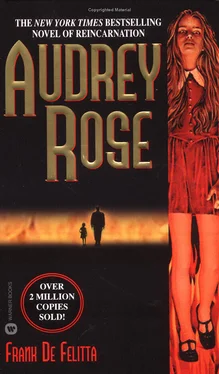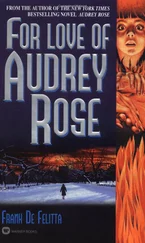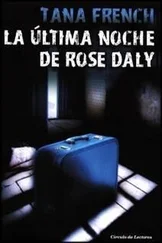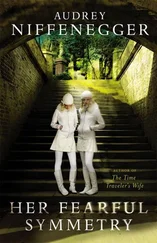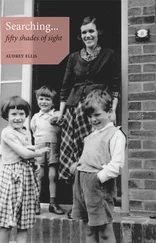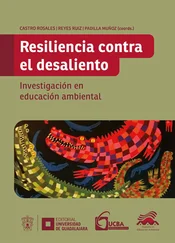Somehow a defense would have to be formulated to convince a court and a jury not only of the sincerity of his belief, but of the reality of reincarnation.
The next stunning event was Hoover’s refusal to be released on bail, contending that he found the accommodations in the detention cell block of the Criminal Courts Building perfectly adequate to his needs. When Brice Mack pressed him to accept bail, Hoover resisted strongly, stating that his religious principles decreed that all mortal suffering is natural and necessary to purify the soul on its cyclic journey through earth life. Mack accepted this reasoning with a large grain of salt and informed his client that he had sources who would be willing to arrange for bail to be posted and also provide the necessary collateral. Hoover seemed genuinely offended at the suggestion.
“I don’t need help of that kind. I have plenty of money.”
Brice Mack felt the same tingle of electricity prickle up his back as he casually asked, “How much do you consider plenty?”
“Oh,” Hoover replied, “by now it must be a quarter of a million at least.”
Mack felt his throat go dry. “Where is it?”
“In a Pittsburgh bank. The First Fidelity Savings.”
Mack managed to swallow a thickness of dry phlegm. “Would you be willing,” he gently put forth, “to spend some of it on your defense?”
“All of it, if necessary,” Hoover stated instantly.
That tore it. Every which way.
By some miracle of sheer luck and Buddha’s special grace, the case of the decade had dropped right into Brice Mack’s young and inexperienced lap. A fear of his ability to handle it properly briefly assailed his confidence, but he quickly suppressed it. With enough money to pursue evidence, gather information, call in expert witnesses from around the globe, the trial would become a classroom seminar. Here was a case that was precedential, textbook, a once-in-a-lifetimer, permitting the imagination its fullest range, opening avenues into legal terrain previously uncharted. The kind of case Darrow would have relished, that Nizer and F. Lee Bailey would drop everything to defend, free of charge. And here it was, all his, punk kid just out of law school.
His mind boggled. At age thirty-two, penniless, unmarried, struggling to survive in a cruel and alien profession, with two suits and one pair of shoes to his name, Brice Mack was suddenly plunged into the center of the winner’s circle. He was made .
Still, his antennae for danger, keened by the proximity of fame, kept a tight rein on his enthusiasm, cautioned him to proceed slowly and with care as there were hurdles ahead, dangerous road slicks and sudden, unmarked dead ends. Three of which were identifiable. The first, and least important to Brice Mack’s long-range game plan, was the jury itself. By a process of careful selection, he would have to requisition jurors of compassion and sensitivity whose minds would be open to fresh concepts and whose imaginations would permit them to take the plunge into the penumbra of the occult and whose religious backgrounds would not cause them to discount the supernatural as entirely unthinkable. He knew he would have to be careful in his questioning, since his adversary, Deputy District Attorney Scott Velie, was certainly no fool and represented to Brice Mack the second and most dangerous hurdle to overcome.
Scott Velie was an old-timer in the trade. A mild man with a soft manner and a sleepy face, but a killer. Brice had studied Scott Velie in law school. His lethal string of convictions were classroom exercises.
Long before a court convened, Velie would have learned from the Templetons of Elliot Hoover’s religious beliefs; hence, he would be privy to the defense’s strategy and would be waiting in the wings to counter any move they might make in the direction of reincarnation.
This, the third hurdle, was the toughest—that of getting the court to accept reincarnation as a feasible defense. Velie could be expected to pull out all stops to discredit such a defense, and the odds were in his favor, unless Brice Mack lucked in on a sympathetic judge or was clever enough to convince an unsympathetic judge of its feasibility.
The assignment of the trial to the court of the Honorable Harmon T. Langley was a break of mammoth proportions.
Elderly, silver-maned, a political appointee from the days of Carmine De Sapio and the O’Dwyer landslide, Harmon Langley, having come to the end of a long and unspectacular career, poised, so to speak, on the edge of the great forgettery, would not be the one, reasoned Mack, to shun the mantle of sudden fame this baby offered.
In less than a day a group of prospective jurors was impaneled; the court clerk revolved the large drum of cards, and the business of selecting a jury got under way.
During the three weeks it took to select eleven jurors, Brice Mack gradually came to learn one disconcerting fact: Scott Velie was allowing him to pick the jury he wanted.
At no point did the district attorney register objection to any question Mack put to the jurors, and very often he agreed to seat a juror acceptable to the defense on the barest minimum of information. That he could be so sure of himself discomfited Brice Mack, but even more discomfiting was the thin, bemused smile Velie wore as he sat back relaxed, listening to his opponent’s deeply probing examination of a juror’s religious beliefs and biases. Either Scott Velie put little stock in the defense’s ability to build its case on the reincarnation angle and was thus permitting him a free hand, or he was waiting for a more opportune moment to smash him.
“Your Honor”—Brice Mack rose from the defense table and faced the bench—“the defense finds no reason to dismiss this juror.” Then, smiling vividly at Miss Hall, he added, “In fact, we welcome her addition.”
Judge Langley turned to Scott Velie.
“Mr. Velie?”
Velie didn’t bother to stand or move, merely shifted the direction of his vision past the eleven seated jurors to the juror under examination.
“Miss Hall, do you believe that criminals should be pampered?”
“No, sir.”
“Have you ever been arrested?”
“No, sir.”
“Are you acquainted with anyone who has had trouble with the law—say, a relative, or friend?”
“No, sir.”
These were Scott Velie’s standard opening questions to each prospective juror. The prosecution could ill afford to take on a juror who at any time in her life might have looked on the law as an enemy.
“Tell me, Miss Hall, if someone takes a child who doesn’t belong to him and removes that child from her legitimate premises and takes her to other premises without consent of the parents, and indeed against the strong objections of the parents, even if that person believed he was committing no wrong and, in fact, the law could prove he was wrong and liable for his actions, would you have any difficulty in finding that person guilty?”
Miss Hall thought it best to give the question a considerable amount of thought before replying, “No, sir.”
Bill’s eyes stole past a row of heads to where Hoover sat, composed and serene. The hated face was like alabaster, its equanimity insufferable. With the slightest shift of focus, Bill brought his vision to rest on the gentle and cherished face of his wife, sitting beside him. The perfect, exquisite profile remained immobile, her attention seemingly fixed on a time and space beyond the present. Bill wondered what thoughts lay on the other side of the glazed and vacuous eyes. He recalled those eyes on another occasion—reflecting a look of shock, revulsion, betrayal, a look that was fleeting, yet one he would never forget. He had deserved it, God knew he had deserved that look—letting go like that, pulling her into the caldron of his anger, pointedly accusing her, practically branding her a traitor. Yes, Bill sadly reflected, in that moment he had lost his most precious possession, more dearly prized than love—the confidence and trust of the only person on earth who really mattered to him.
Читать дальше
